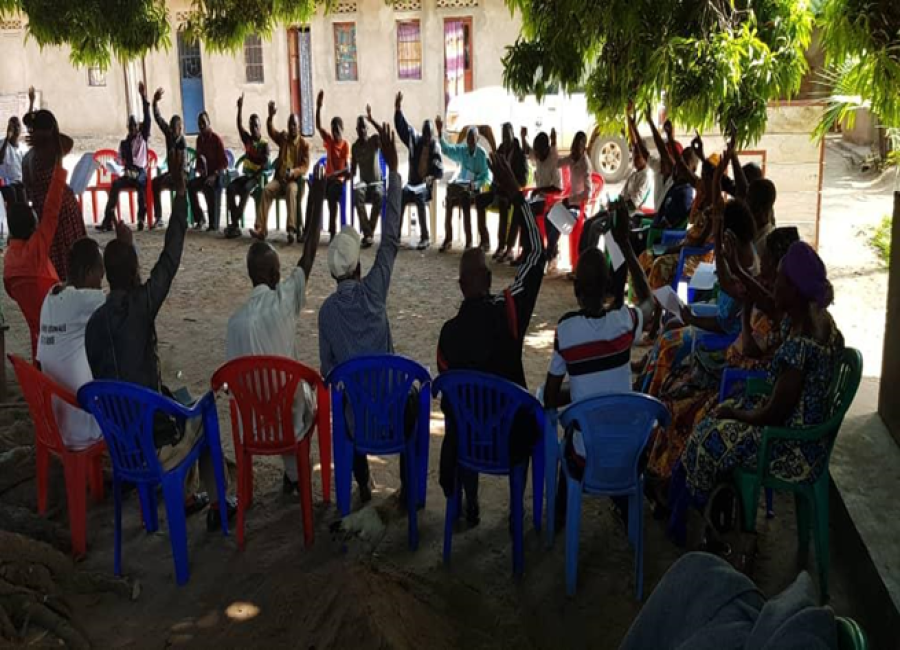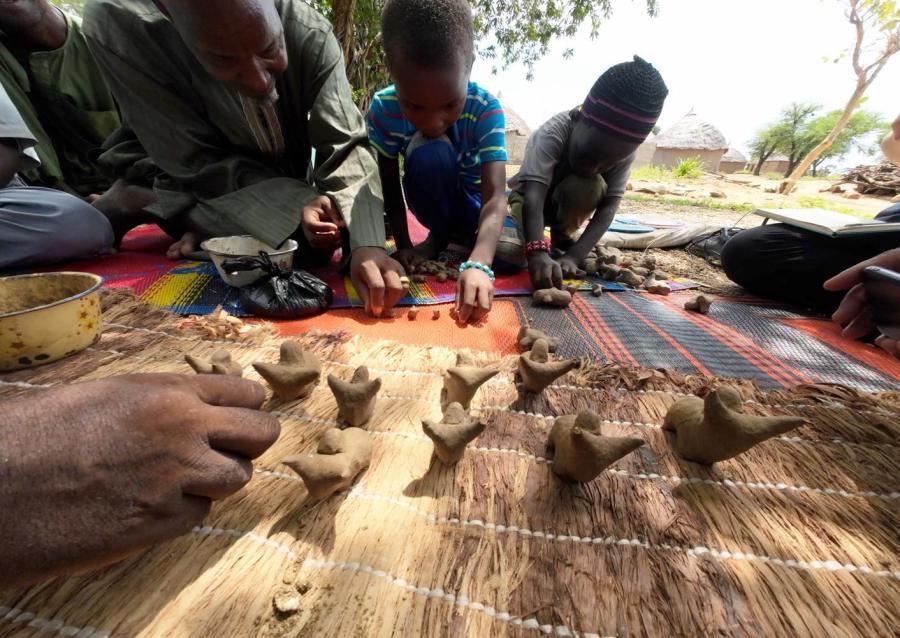Good News! Below is a press release from our campaign partner, the Rainforest Foundation in the UK. Since January this year, we’ve been sending letters to World Bank president James Wolfensohn on behalf of DRC forest communities. The good news is that Wolfensohn agreed to listen directly to indigenous peoples of DRC, and promises continued dialogue with them concerning the Bank’s plans for forest exploitation. THANKS for every letter you wrote on this issue! More letters will certainly help.
RAINFOREST FOUNDATION
PRESS RELEASE
17.00 Thursday 8 July 2004. For immediate release.
Congo 'Pygmies' put case for forest protection and peoples' rights to President of the World Bank
'Pygmy' peoples today urged World Bank President James Wolfensohn to halt plans that could unleash a wave of destruction on the rainforests of the Democratic Republic of Congo (DRC) where they live.
The 'Pygmys' put their case directly to Mr Wolfensohn during a video conference organised by the Rainforest Foundation UK [1], which is challenging Bank plans for a massive increase in industrial logging in the Congo. The Bank is pushing through new laws and a 're-zoning' of the Congo forests - the second largest in the world- that could see up to 60 million hectares (an area the size of France) handed out to logging companies.
"You must not forget that the lives of indigenous peoples depend on the forest," Adolphine Muley of the Congolese Union of Indigenous Women (UEFA) told the World Bank President. "For a 'Pygmy' to talk of forest exploitation is to talk of reinforcing misery and poverty. You must put strategies in place so that the 'Pygmy' peoples are not damaged by the system that you are developing."
According to the Bank's own estimates, as many as 35 million of the Congo's 50 million people depend on the forests for their very survival. [2]
Simon Counsell, director of the Rainforest Foundation UK said: "The World Bank must strictly apply its own environmental and social safeguards, and fully respect international laws, to avoid what could be the world's first major environmental and humanitarian catastrophe of the 21st century. We will be working to ensure that the people of Congo have a say on the future of their forests, and that the rights of the people living in the forest are respected," he said.
Responding to these pleas, James Wolfensohn pledged the Bank to further discussion with Congolese people and non-governmental organisations about the future of the of the country's rainforests.
The Rainforest Foundation first raised its fears about the threatened 'carve-up' of Congo's rainforests with the World Bank in early December 2003. The UK All Party Parliamentary Group on the Great Lakes Region and Genocide Prevention (APPG), which has a membership of 148 MPs and Peers, has said that it "intends to follow closely" the World Bank's response to the concerns of the Foundation and Congolese campaigners [3].
Notes to editors:
[1] The Rainforest Foundation supports indigenous people and traditional populations of the world's rainforests in their efforts to protect their environment and fulfil their rights. 2] According to the World Bank, the average income in the Democratic Republic of Congo is the lowest in the world, at per year. 3] The APPG covers the Great Lakes region of Africa: Rwanda, the Democratic Republic of Congo, Burundi, and Northern Uganda. APPG was formed following the UK's failure to prevent genocide in Rwanda and provides information so that Parliamentarians can play their role in preventing future genocides. In recent years, the Group has played an active role in investigating and bringing about parliamentary scrutiny to the illegal plunder of Congo's vast mineral and forest wealth.


